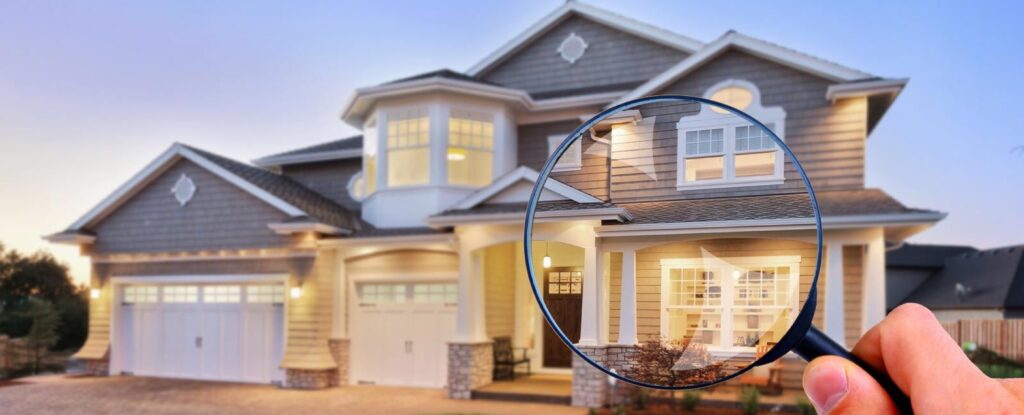1. Introduction: Why Home Inspection Matters in Vancouver
Vancouver, one of Canada’s most desirable cities, offers stunning properties—from modern downtown condos to charming homes in the North Shore and historic houses in East Van. However, beneath the beauty, there can be unseen issues that impact safety, comfort, and property value.
That’s why a home inspection in Vancouver is one of the most critical steps in any real estate transaction.
Whether you’re buying your dream home or selling your current one, a professional inspection ensures transparency, safety, and peace of mind.
In a city known for its rain, older buildings, and high property prices, skipping a home inspection could easily lead to costly surprises. Let’s dive deep into everything you should know about this essential process in British Columbia’s housing market.
2. What Is a Home Inspection?
A home inspection is a professional evaluation of a property’s condition. It’s not about cosmetic issues — it’s about uncovering structural, mechanical, and safety problems that might not be visible during a walkthrough.
A certified Vancouver home inspector examines the home from top to bottom, identifying potential problems and providing a written report that outlines findings, safety concerns, and recommendations for repairs or maintenance.
The inspection empowers you to make informed decisions — whether that means renegotiating a deal, requesting repairs, or proceeding confidently with your purchase or sale.
3. Why Home Inspections Are So Important in Vancouver’s Climate
Vancouver’s coastal location and frequent rainfall create unique challenges for homeowners. The combination of moisture, aging infrastructure, and hilly terrain means certain issues are especially common here.
Common Local Problems Found During Inspections
- Moisture and mold: Vancouver’s damp climate can lead to hidden leaks or mold growth in basements and attics.
- Roof damage: Heavy rainfall and moss buildup often deteriorate shingles faster.
- Drainage issues: Improper grading or clogged gutters can cause flooding.
- Rot and decay: Wood structures can weaken if exposed to constant moisture.
- Insulation and ventilation problems: Common in older homes, leading to higher heating costs.
A thorough home inspection helps detect these problems before they turn into expensive repairs.
4. The Home Inspection Process in Vancouver
Most professional home inspections in Vancouver follow a standard structure. Here’s what typically happens:
Step 1: Booking the Inspection
After an offer is accepted, buyers (or sometimes sellers) hire a licensed inspector. In BC, home inspectors must be certified by Consumer Protection BC.
Step 2: On-Site Examination
The inspector spends 2–4 hours inspecting the property’s major systems and components — from roof to foundation. Many inspectors encourage clients to attend, so they can explain findings in real time.
Step 3: Written Report
After the visit, you’ll receive a comprehensive report, often within 24 hours. This includes:
- Descriptions of visible defects
- High-resolution photos
- Recommendations for repairs or replacements
- Safety warnings if applicable
This document becomes an essential tool for negotiation and planning.
5. What Does a Typical Vancouver Home Inspection Cover?
While every inspector may have slightly different methods, most will evaluate:
Exterior
- Roofing, gutters, and downspouts
- Walls, siding, and paint condition
- Windows, doors, and caulking
- Porches, balconies, and decks
- Drainage and grading
Interior
- Foundation and structural framing
- Electrical panels, wiring, and outlets
- Plumbing systems and fixtures
- Heating and cooling systems
- Insulation, attic, and crawl spaces
- Walls, ceilings, floors, and ventilation
- Moisture levels in key areas
For condos or strata units, inspectors often check individual components (e.g., HVAC, plumbing) and review strata documentation for building-wide issues.
6. How Much Does a Home Inspection Cost in Vancouver, BC?
Prices depend on property type, age, and size. Generally, you can expect to pay:
| Property Type | Average Cost (CAD) |
| Condo or Apartment | $350 – $500 |
| Townhouse | $400 – $600 |
| Single-Family Home | $500 – $800 |
| Large or Heritage Home | $800 – $1,200 |
Add-ons like thermal imaging, radon testing, or mold assessments can increase costs.
In Vancouver’s market, this small upfront expense can save buyers thousands in repairs later.
7. For Homebuyers: How an Inspection Protects You
When you’re investing hundreds of thousands — or even millions — in a property, an inspection is your safeguard against unexpected problems.
Benefits for Buyers
- Identifies structural and safety concerns early
- Provides leverage to renegotiate the price
- Helps estimate future maintenance costs
- Offers peace of mind about your investment
For many first-time buyers in Vancouver, the home inspection is also a great learning opportunity. By walking through the property with your inspector, you’ll understand how systems work and what to look for in future maintenance.
8. For Sellers: Why Pre-Listing Inspections Are Smart
While inspections are often buyer-driven, many Vancouver sellers now request their own pre-listing inspection before putting their home on the market.
Advantages for Sellers
- Identifies and fixes issues before listing
- Increases buyer confidence and trust
- Reduces negotiation delays
- Justifies asking price with transparency
- Prevents last-minute deal cancellations
In a competitive housing market like Vancouver’s, being proactive can give your listing a strong advantage.
9. Legal and Licensing Requirements in British Columbia
Home inspectors in BC are required to:
- Be licensed by Consumer Protection BC
- Follow the Home Inspectors Licensing Regulation
- Adhere to a Code of Ethics and Standard of Practice
You can verify a professional’s license easily through the Consumer Protection BC website. Working with a properly licensed inspector ensures compliance and quality standards.
10. Common Red Flags Found in Vancouver Home Inspections
Home inspections often reveal issues that can significantly affect property value or safety. Common red flags include:
- Leaking roofs or flashing failures
- Outdated aluminum or knob-and-tube wiring
- Cracked foundations or shifting basements
- Poor ventilation and insulation
- Old plumbing materials like galvanized steel
- Water intrusion or visible mold
- Improper drainage and grading
- Structural issues due to moisture
While no home is perfect, understanding the severity of these problems helps buyers make sound decisions.
11. Should You Attend the Home Inspection?
Yes — absolutely.
Being present during the inspection allows you to:
- Ask questions directly
- See problem areas firsthand
- Understand maintenance needs
- Get advice on long-term care
A good inspector doesn’t just find issues — they educate you about how to maintain your home efficiently.
12. After the Inspection: What Comes Next
Once you receive your report, you’ll have several options depending on the findings:
- Proceed as planned if no major issues exist
- Request repairs before closing
- Negotiate a lower price to cover repair costs
- Cancel the deal if the property poses too many risks
The report is also useful for future maintenance planning — keeping your home safe and efficient for years to come.
13. Weather Challenges in Vancouver Inspections
Vancouver’s weather can sometimes complicate inspections.
Rain can make it difficult to evaluate exteriors, while snow or fog can limit roof access. Still, wet conditions often help inspectors spot leaks and drainage issues that might otherwise go unnoticed.
If weather prevents a full review, inspectors may schedule a follow-up visit once conditions improve.
14. The Role of Technology in Modern Home Inspections
Today’s home inspectors in Vancouver use cutting-edge technology to detect issues beyond the naked eye.
Tools Commonly Used:
- Thermal imaging cameras for heat loss or moisture detection
- Infrared scanners to reveal hidden insulation problems
- Drones for hard-to-reach roofs
- Moisture meters for detecting leaks behind walls
These innovations improve inspection accuracy and deliver more detailed insights for both buyers and sellers.
15. Home Inspections for New Builds in Vancouver
Even brand-new homes aren’t immune to issues.
Defects like poor insulation, plumbing misalignments, or electrical faults are not uncommon in new constructions.
Hiring a home inspector for a new build ensures your property meets BC Building Code standards and verifies that the builder completed all work properly before the warranty starts.
16. How to Choose the Right Home Inspector in Vancouver
Here’s a quick checklist to ensure you hire a qualified professional:
- Verify Consumer Protection BC license
- Ask about experience with Vancouver properties
- Review sample reports for quality and detail
- Check online reviews or get referrals from agents
- Confirm liability insurance coverage
Remember: the cheapest inspector isn’t always the best. Choose one who offers a detailed, unbiased evaluation.
17. For Real Estate Agents: Supporting Clients Through Inspections
Many realtors in Vancouver use home inspections as a trust-building tool. By guiding clients through the inspection process, they help buyers feel secure and informed — which strengthens relationships and reduces the risk of post-sale disputes.
18. Understanding the Inspection Report
A professional report should include:
- A clear summary of findings
- High-quality photographs
- Severity ratings (minor, moderate, major)
- Maintenance and repair suggestions
- Recommendations for specialist evaluations
A good report is objective and educational, not alarmist — helping clients understand what’s essential versus optional.
19. Why Skipping a Home Inspection Is Never Worth It
In competitive markets, some buyers feel pressured to skip inspections to win bids. However, this can be a costly mistake.
Without a professional evaluation, you risk buying a home with:
- Hidden leaks or rot
- Faulty wiring
- Foundation or structural damage
- Mold or pest infestations
A few hundred dollars for an inspection today can save you tens of thousands later.
20. Choosing a Trusted Partner — Hipwex
At Hipwex, we believe informed decisions lead to better homeownership. We connect buyers and sellers in Vancouver with trusted, certified home inspectors who follow British Columbia’s highest professional standards.
Our platform simplifies the process — from booking inspections to reviewing detailed reports — ensuring transparency and reliability every step of the way.
With Hipwex, you get the confidence that your property has been evaluated by experts who understand Vancouver’s climate, construction, and regulations.
Whether you’re purchasing your first condo or selling a family home, Hipwex helps protect your investment — so you can move forward with complete peace of mind.
Conclusion: Vancouver Home Inspections Are an Investment, Not an Expense
A home inspection in Vancouver is far more than a formality. It’s your protection against hidden costs, your assurance of safety, and your opportunity to buy or sell with confidence.
In a market as dynamic as Vancouver’s, every decision matters — and getting a professional inspection is one of the smartest ones you can make.


